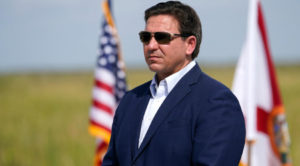The military’s approach to pronoun usage and religious convictions among service members has sparked considerable debate and concern within conservative circles. Under a 2020 Equal Opportunity law, there are implications that service members could face disciplinary action, including potential court-martial, for refusing to use another service member’s preferred pronouns. Capt. Thomas Wheatley from the U.S. Military Academy at West Point highlights the potential conflict between upholding transgender rights and respecting individuals’ deeply held religious beliefs.
Wheatley argues that while the military aims to protect transgender service members, it must also ensure equal protection for those who hold different perspectives, especially when rooted in sincere religious convictions. The existing Military Equal Opportunity (MEO) regulations, while not explicitly prohibiting “misgendering,” imply that using rejected pronouns could violate regulations against sex-based harassment and discrimination, thus subjecting service members to disciplinary action under the Uniform Code of Military Justice (UCMJ).
The concern extends to potential criminal trials for service members who refuse to use preferred pronouns, even based on principled religious grounds. This raises questions about the constitutional rights of service members, particularly regarding free speech and freedom of conscience. The possibility of invoking UCMJ Articles 133 and 134, which deal with conduct unbecoming of an officer and activity discrediting the military institution, for pronoun-related issues is a contentious issue.
Wheatley’s research emphasizes the need for clarity and protection of religious freedom within the military, especially as it navigates diversity and inclusion initiatives. The debate intersects with broader concerns about compelled speech, religious liberty, and the role of the military in enforcing ideological conformity. Instances like the slow processing of religious waivers for COVID-19 vaccines highlight ongoing tensions between military policies and individual rights.
Advocates suggest congressional intervention to safeguard service members’ rights to use pronouns consistent with their religious convictions. This includes decriminalizing unspecified MEO violations and narrowing the scope of regulations to avoid undue infringement on personal beliefs. Training programs and regular assessments of religious freedom protections are proposed as measures to ensure a balanced approach that respects diverse viewpoints within the military.
Overall, the debate underscores the delicate balance between promoting inclusivity and diversity while safeguarding fundamental rights, particularly in a context as complex and diverse as the U.S. military.





